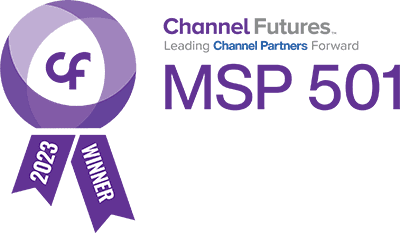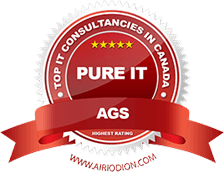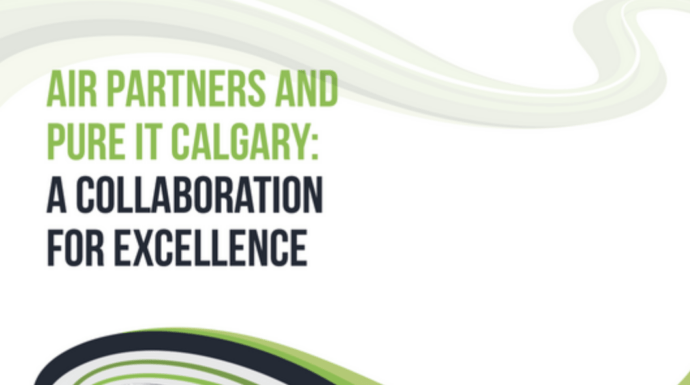What Are The Alberta Health Information Act Regulations?
Pure IT’s Guide to Compliance Standards
The Alberta Health Information Act (HIA) is a crucial regulation affecting how healthcare organizations in the province handle patients’ personal information. As a data privacy law, it governs the collection, use, and disclosure of personal information for medical practices and offers residents ultimate control over their data. Understanding the HIA and its regulations is vital for healthcare providers in Alberta to maintain compliance and ensure the safety and privacy of their patient’s information.
Pure IT is an IT support company that assists organizations across Alberta in adhering to the stringent requirements of the HIA. By providing tailored services that address the unique needs of each healthcare provider, Pure IT ensures that organizations can implement strategies to meet the standards of the HIA while maintaining the highest level of patient data confidentiality.
Key Takeaways
- The Alberta Health Information Act regulates patient data privacy for healthcare providers in Alberta
- Pure IT supports organizations in meeting the compliance standards of the HIA
- Compliance strategies focus on patient data protection and confidentiality.
We’ve got everything you need, all in one place.
Pure IT offers everything you need for peak performance.
Understanding Alberta Health Information Act Regulations
Health Information Act Overview
The Alberta Health Information Act (HIA) is a healthcare-specific data privacy law implemented by the provincial government. Its primary purpose is establishing guidelines and standards for protecting, collecting, and disclosing health information across the province. As an organization operating in Alberta, it’s crucial for you to understand and comply with these regulations to safeguard your patients’ information and adhere to the highest industry standards.
Types of Health Information
Under the HIA, health information is categorized into two main types:
- Individually Identifying Health Information: This refers to any data directly linked to an individual, such as name, address, date of birth, and healthcare identification numbers.
- Non-identifying Health Information: This information cannot be directly attributed to an individual. Examples include aggregated health data or anonymized patient records.
According to the HIA regulations, your organization needs to recognize the difference between these two categories and implement appropriate measures to protect both types.
Rights and Responsibilities
The HIA identifies specific rights and responsibilities for individuals and organizations handling health information. Some key aspects include:
- Individual Rights: Patients can access their health records and request corrections to errors or omissions. They also have the right to be informed about the types of health information collected and its use within your organization.
- Organizational Responsibilities: Your organization is responsible for implementing measures to protect health information and ensuring all staff members know the HIA regulations and requirements. This includes developing policies and procedures for collecting, using, disclosing, and retaining health information and establishing a clear plan for responding to potential security breaches.
By understanding these rights and responsibilities, your organization can effectively comply with the Alberta Health Information Act and ensure the highest level of privacy and trust for your patients and stakeholders.
Pure IT’s Support in Compliance Standards
Data Protection and Security Solutions
Pure IT can assist your organization in complying with Alberta Health Information Act (HIA) regulations. Beyond general data privacy guidelines, HIA focuses on healthcare-specific information. By implementing data protection and security solutions tailored to your organization, Pure IT ensures that your patient’s personal information is safeguarded. Adhering to these provincial government standards is imperative to maintain trust and compliance within healthcare.
Compliance-driven IT Consulting
Navigating HIA compliance can be daunting without expert guidance. Pure IT provides compliance-driven IT consulting services to support organizations across Alberta. Their familiarity with HIA regulations allows them to assess your current infrastructure and recommend changes if necessary. By aligning your organization with HIA standards, Pure IT helps alleviate compliance concerns and allows you to focus on delivering quality healthcare.
Training and Awareness
One of the most significant components of HIA compliance is ensuring your staff is trained appropriately in maintaining the privacy of patient information. Pure IT offers training and awareness programs to foster a comprehensive understanding of HIA regulations and guidelines. This approach empowers employees with the skills and knowledge required to responsibly collect, use, and disclose healthcare data, ultimately safeguarding patients’ privacy in Alberta.
Strategies for Meeting Compliance Standards
Risk Assessment and Mitigation
To meet compliance standards, performing regular risk assessments of your organization’s health information systems is crucial. Identify vulnerabilities and potential threats that could compromise the data privacy and integrity of patients’ information. After evaluating the risks, implement appropriate measures to mitigate them, such as updating software, conducting employee training, and establishing incident response protocols. You should document all risk assessment activities and their results to demonstrate compliance with HIA regulations.
Implementing Strong Data Security Policies
Establishing robust data security policies is essential for compliance with Alberta’s Health Information Act. Your organization should develop and implement clear security policies and procedures that outline roles and responsibilities related to health information management. Regularly review and update these policies in accordance with changes in HIA regulations or technological advancements. Additionally, provide training for staff members to ensure they understand their responsibilities and the correct handling of health information.
- Ensure access control with role-based permissions
- Implement encryption for data at rest and in transit
- Maintain secure storage and backups for health information
- Follow secure data disposal procedures
Continuous Monitoring and Updates
Compliance with the HIA requires continuously monitoring your organization’s health information systems and staying up-to-date with regulation changes. Regularly update your software, hardware, and security practices to protect against emerging threats and vulnerabilities. Invest in cybersecurity solutions that provide real-time monitoring, threat detection, and incident response capabilities. Periodically review your organization’s compliance with HIA regulations and take necessary corrective actions to address any identified gaps or deficiencies. By maintaining a proactive and vigilant approach toward HIA compliance, your organization can better protect patient data and reduce the risk of costly fines or legal actions.
Frequently Asked Questions
What are the fundamental regulations of the Alberta Health Information Act?
The Alberta Health Information Act (HIA) aims to protect patient health information’s privacy and confidentiality. The key regulations include obtaining patient consent before collecting and using their information, limiting access to authorized personnel, and implementing appropriate security measures to prevent unauthorized access or disclosure.
How does the Alberta Health Information Act ensure privacy and security?
The HIA mandates healthcare providers and organizations in Alberta to establish administrative, technical, and physical safeguards to protect health information. These safeguards create a secure data protection, transmission, and storage environment. Additionally, strict rules govern the collection, use, and disclosure of health information, ensuring patients’ privacy rights are upheld.
What are the key differences between Alberta Health Information Act and other provinces’ acts?
While all Canadian provinces have privacy legislation related to healthcare, the specific provisions may vary. For example, the HIA in Alberta has unique requirements for obtaining consent, implementing safeguards, and reporting breaches, differing from legislation such as Ontario’s Personal Health Information Protection Act (PHIPA) or British Columbia’s Personal Information Protection Act (PIPA).
How can healthcare organizations ensure compliance with Alberta’s Health Information Act?
To ensure compliance with the HIA, healthcare organizations should develop and implement robust privacy policies and procedures, regularly train their staff in privacy principles, and maintain strong security measures to protect health information. Regular audits and risk assessments to identify potential vulnerabilities and address them promptly are also essential for compliance.
What is the role of Pure IT in supporting Alberta healthcare organizations’ compliance?
Pure IT specializes in providing IT support and solutions that help healthcare organizations in Alberta meet HIA compliance standards. Services include comprehensive security assessments, IT infrastructure management, and tailored consultations to implement best practices in data protection, privacy policies, and employee training.
What are the best practices to manage and secure health information under the Alberta Health Information Act?
Best practices for managing and securing health information under the HIA include:
- Implementing robust access controls for healthcare professionals and staff.
- Utilizing robust encryption methods to protect data during storage and transmission.
- Developing clear policies and procedures regarding collecting, using, and disclosing health information.
- Conducting regular risk assessments to identify and address vulnerabilities.
- Training employees on privacy principles, best practices, and breach responses.
By adhering to these best practices, healthcare organizations can enhance the privacy and security of their patient’s health information and stay compliant with the Alberta Health Information Act.








